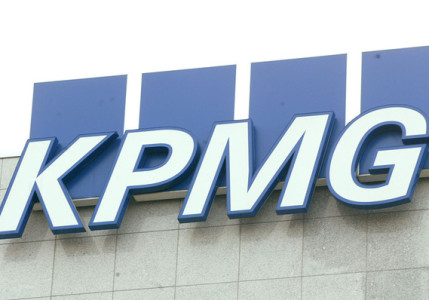By Francine McKenna

Of all the individuals and firms tied up in the scandal over bribery and corruption at FIFA, scrutiny has so far largely escaped KPMG, the soccer association’s external auditor.
The accounting and consulting firm’s Swiss member is responsible not only for the audit of the multibillion-dollar umbrella FIFA organization, and has been since before the period under scrutiny by U.S. and Swiss prosecutors, but also audits a large sample of member associations around the world that receive FIFA funding on an annual basis. KPMG also prepares a compilation of all financial reports after the completion of each four-year World Cup cycle.
Also read: Sepp Blatter to resign as FIFA president
KPMG was also the auditor and adviser for the official Russia and Qatar organizing committees when they prepared the winning bids that are now targeted in corruption investigations in the U.S. and Switzerland. KPMG continues to support Russia’s organizing committee, while Qatar switched to Ernst & Young in 2011.
A spokesman from KPMG declined to comment. “As FIFA’s statutory auditor, we are bound by professional confidentiality and have to refrain from any comment regarding our client.”
Robert Appleton, a former assistant United States attorney, a special investigations counsel with Paul Volcker’s U.N. Iraqi Oil for Food Commission Investigation and the former chief of the United Nations Anti-Corruption Task Force, said KPMG absolutely should have caught, and called out, these alleged illegal activities.
“There were sufficient red flags of improper and highly suspicious payments, as well as money transfers to and from officials and others, including other highly questionable activities coupled with a history of similar issues, that should have been identified and that should have caused the auditors to highlight and report on them internally, and recommend further investigation. This is especially the case in light of the recent history of this organization, where recent investigations already had found bribery and corruption activity,” Appleton said.
Though not a publicly traded company, FIFA is required by Swiss law to be audited by a qualified firm because of its size as measured by revenue and number of employees. KPMG Switzerland actually claims to be an expert in not-for-profit association audits in Switzerland, including sponsoring a “competence center” to share knowledge inside and outside the firm.
KPMG’s audit is intended to express an opinion on whether the financial statements, prepared by FIFA personnel according to International Financial Reporting Standards, are free from material misstatements. KPMG reviews the organization’s internal controls when deciding which audit procedures to perform but did not, in this case, express an opinion on the effectiveness of FIFA’s internal control system.
Jerry Silk, a partner at law firm Bernstein Litowitz Berger and Grossman who has represented investors in lawsuits against the global audit firms, said the country-level member associations that pay dues to belong to FIFA and participate in its programs and events are FIFA’s true stakeholders.
“Even though a few FIFA member associations were named in the indictment, the vast majority of the national associations and their executives are innocent of any wrongdoing. They have a fundamental right to know what KPMG did or did not do as auditor to protect their interests in the global association,” Silk said.
Also read: Blatter has dealt a blow to Switzerland’s economy
The Department of Justice indictment states that the FIFA officials conspired to solicit and receive well over $150 million in bribes and kickbacks in exchange for their official “support.” This “support” included influencing the award of marketing, broadcast rights and sponsorship contracts to those who paid bribes and, in one case, allegedly selling votes to award the 2010 World Cup to South Africa. FIFA’s internal controls would govern which payments require authorization and by what level of executive. Strict controls would also prevent a payment to an executive’s personal account if it is not a payroll transaction, for example, and would provide special instructions for international wire transactions for the bank and within FIFA.
Some of those transactions went through FIFA headquarters and used FIFA bank accounts to send money to U.S. bank accounts controlled by the indicted officials, according to the Justice Department. That means KPMG, as FIFA’s independent external auditor, could have seen the transactions while performing annual audit tests.
KPMG selects activities and transactions to be tested based on their risk of causing a material misstatement of financial reports. The transactions highlighted by the DOJ indictment may not have met KPMG’s materiality threshold, given the size of the organization. FIFA recorded more than $3 billion in revenue in 2014. However, Silk is surprised that after all this time working so closely with FIFA, KPMG would not have uncovered evidence of the illegal acts the DOJ is now alleging.
“With all the prior allegations of corruption and bribery leveled against FIFA and some of its member associations over the years, KPMG should have been on high alert to the potential for corruption,” he said. “Auditors are supposed to do more and be more vigilant when there’s clearly higher risk.”
Bron: Marketwatch

